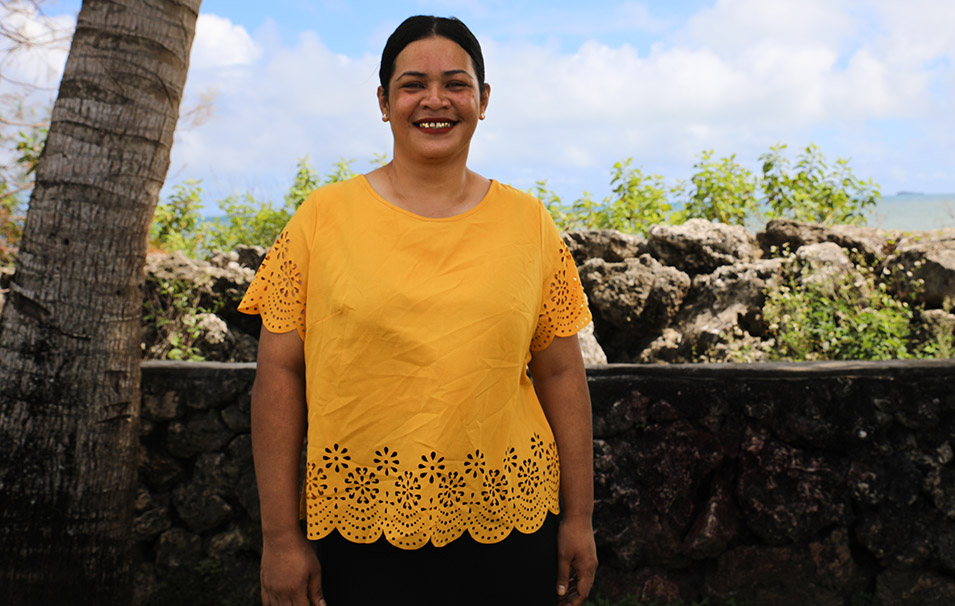
After applying for the PALM scheme, completing the interview and tests, 'Unaloto was offered a role as a meat processing worker in Western Australia.
Leaving her daughter and family was hard, but she knew working in the PALM scheme would mean a better income to pay for school fees and basic living essentials for her family.
“I’m happy when I got a job when I go to Aussie, it’s really helpful for my family. That’s all I want in my life to look after my family,” 'Unaloto said.
Before arriving in Australia, 'Unaloto took steps to get ready for the challenging but rewarding work.
Meat processing facilities and abattoirs can be very cold, and there can be lots of blood and sharp knives. It can be a physically and mentally demanding industry and different roles require differing levels of fitness.
“I knew it would be hard work in Australia, so before leaving I started going to the gym to get strong,” 'Unaloto said.
In Australia she worked as a packer, a leading hand and in a quality assurance role, checking all the products before they left the meat processing facility.
“I check it is the right code, the right plastic bag, the right date. Check all the product is good.”
Moving between roles and learning in the workplace built 'Unaloto confidence.
“The first time I go to Aussie… when I go there, I keep smiling I never say anything,” she said.
“I kept going, learning and learning. Now I’m talking and talking.”
Meat workers often work five or six days a week at specific times, with strict start and finish times and scheduled meals and breaks.
During her time off, 'Unaloto kept connected with her daughter and family through Facebook and phone calls.
She also encouraged other women to stay strong and keep working.
“Some of the new people in the beginning say, ‘it’s hard, I want to go home'. But I kept going for my family,” she said.
“I tell them to keep working. I know it’s hard and I’ve been through that."
After repaying initial deductions to her employer for flights and mobilisation costs, 'Unaloto started sending money to her family and saving towards her goals, including to buy her father a car for the farm.
“Every week I get my salary, I take my money for food and rent, and the rest I send to my family,” she said.
“My dad would say that when he talked to the people back in the village, they would call him a millionaire. Because every week he got money,” she laughed.
Now 'Unaloto is back in Tonga looking after her daughter and helping her family with the farm.
She hopes to work in Australia again to earn more money and develop new skills in meat slicing.
“I want to go back to Aussie to work to help my family. That’s all I want in life. But one day we will be together, stay together," she said.
“Everything I do from there, I always put my family first.”
If you are thinking about joining the PALM scheme, you need to consider if it’s right for you. The scheme can provide you and your family with many opportunities, but it comes with time away from home and other sacrifices too.
Learn more about the PALM scheme at www.palmscheme.gov.au
--



